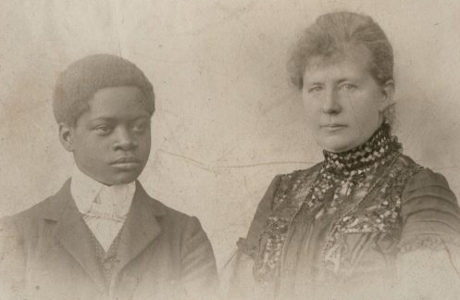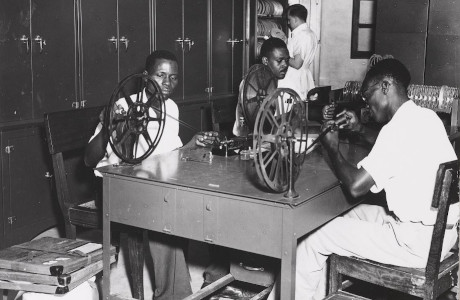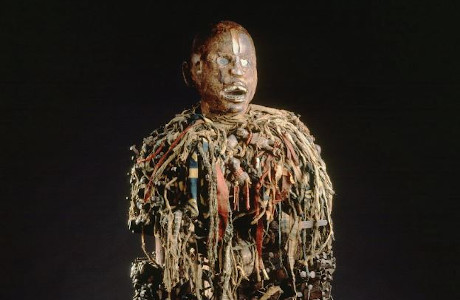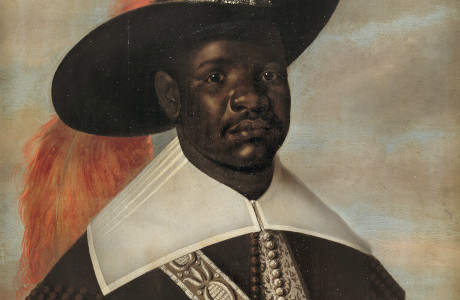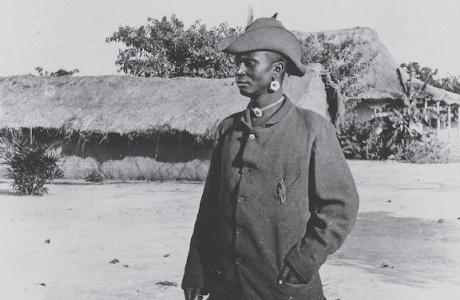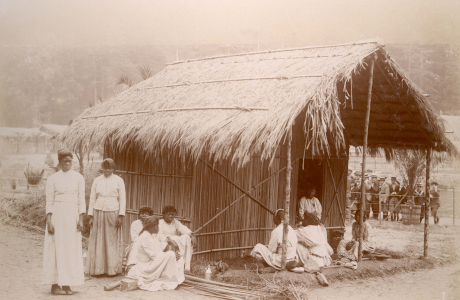'Before turning the page, you have to read it'
Bénédicte Savoy (26.01.2020)
A survey conducted in 2020 by the University of Antwerp and the RMCA revealed that Belgians have little factual knowledge about their country's colonial past.
This series of articles is not a history course, but it presents some stories from the history of Belgium and the Congo, which are often little known to the Belgian public. It is inspired by elements of the AfricaMuseum's permanent exhibition and the work of its historians.
Paul Panda Farnana, a Congolese nationalist and pan-Africanist
Paul Panda Farnana plays an important role in the history of the Democratic Republic of Congo. Farnana was a Congolese agronomist, nationalist and pan-Africanist. He helped lay the foundation for Congolese nationalism that would eventually lead to independence. Farnana also used his position to fight against the injustices that the Congolese faced under colonial rule.
Colonial cinema on the brink of the decolonisation of the Belgian Congo: propaganda, censorship and contrasting vision with reality (1940-1960)
In the 20 years preceding Congo's independence, Belgium increased the number of film productions in the Belgian Congo. These films had a double objective for the coloniser: to present an idealised version of a ‘modern colony’ and to ‘educate’ the Congolese population, following a paternalistic approach. The films from this period, which show a united Belgian-Congolese community living in peace and harmony, contrast with the social and political turmoil of the time, which eventually led to Congo's independence.
Catalogue number EO.0.0.7943. A story about restitution
Some of the objects in the AfricaMuseum are controversial for their violent colonial history. In 1878, a kituma sculpture was stolen by Belgian tradesman Alexandre Delcommune from Congolese chief Ne Kuko. Today, the object is kept in the AfricaMuseum under catalogue number EO.0.0.7943.
The Kongo kingdom: long-standing diplomatic and trade connections with Europe
The Kongo kingdom is one of Africa’s ancient kingdoms whose history is exceptionally well documented. This article highlights some pieces of this rich, centuries-old history, and deconstructs some of the stereotypes that still persist today about the history of Africa.
The Yeke and the Congo Free State, from confrontation to collaboration
At the end of the 19th century, several Europeans working for Leopold II tried to conquer the territory occupied by the Yeke, a population of present-day Katanga. An examination of the relations between colonisers and the Yeke makes it possible to deconstruct many stereotypes and preconceived ideas that still persist today about the history of Africa and colonisation.
The human zoo of Tervuren (1897)
AfricaMuseum traces its origins to the International Exhibition in Brussels in 1897. At the instigation of King Leopold II, a ‘Colonial Section’ was set up in Tervuren to win over investors and the Belgian population and glean support for the colonial project in Congo. No fewer than 267 Congolese were taken by force to Belgium and exhibited to the public, like animals in a zoo. Seven of them lost their lives. Far from being an isolated case, this appalling spectacle was part of a genuine industry that fed the racism still seen in Western societies today.
